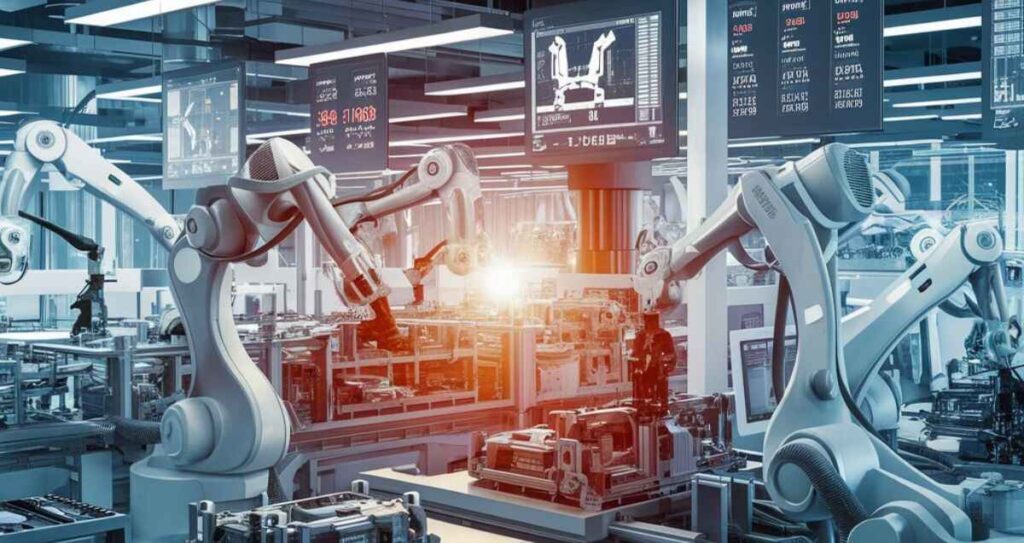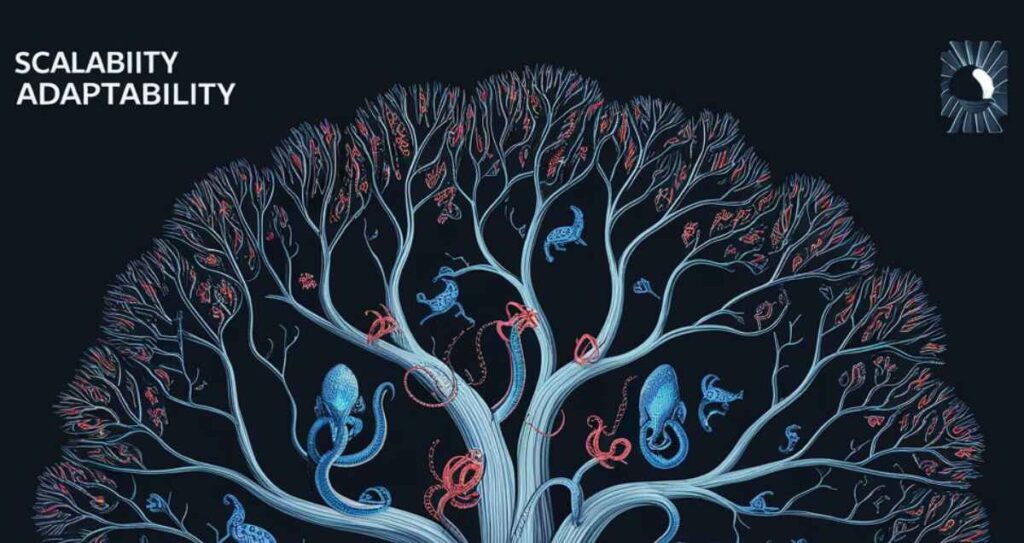10 Benefits Of Artificial Intelligence (AI) refers to the simulation of human intelligence in machines designed to perform tasks that typically require human thinking and decision-making. This technology enables computers to learn from data, make decisions, and even solve complex problems.
Imagine a world where mundane tasks are automated, decisions are made in split seconds with precision, and services are personalized just for you. AI is not just a concept from science fiction—it’s happening now. Let’s explore the 10 Benefits Of Artificial Intelligence that are transforming our world.
Artificial Intelligence (AI) is transforming industries by automating tasks, enhancing decision-making, and personalizing experiences. From boosting efficiency to improving cybersecurity, AI offers numerous advantages that make businesses more scalable and adaptable.
Increased Efficiency and Automation

One of the most significant benefits of artificial intelligence is its ability to automate repetitive tasks, freeing up human workers for more complex and creative work. AI-powered systems can handle everything from customer support to data analysis with greater speed and accuracy than humans.
Examples of Efficiency in AI:
- Robotic Process Automation (RPA): Software robots handle repetitive business processes, such as invoicing, payroll, and claims processing.
- Manufacturing: Robots and AI-driven machines are used in assembly lines, significantly boosting production rates.
According to a McKinsey report, businesses that integrate AI technologies can increase productivity by up to 40%, making them more competitive in today’s fast-paced environment.
Enhanced Decision-Making
AI helps decision-makers process vast amounts of data quickly, providing insights that would take humans weeks or even months to analyze. AI’s machine learning algorithms allow it to identify patterns, trends, and anomalies in data that can improve the quality of decisions in real-time.
Case Study: Predictive Analytics in Retail
Companies like Amazon utilize AI-driven predictive analytics to forecast customer behavior, which allows them to optimize inventory, personalize marketing, and increase customer satisfaction.
A 2020 Deloitte study found that businesses that adopt AI for decision-making saw a 20-30% improvement in decision speed and accuracy, showcasing how AI supports better strategic planning.
Cost Reduction
Another major benefit of artificial intelligence is its ability to reduce costs. By automating routine tasks and improving operational efficiencies, AI can cut down labor costs and minimize the potential for human error.
AI in Healthcare
AI systems can assist in diagnosing medical conditions, interpreting medical images, and even planning treatments. According to a report from Accenture, AI could save the healthcare industry more than $150 billion annually by 2026, due to reduced hospital stays, optimized treatment plans, and improved operational workflows.
Improved Customer Experience
Customer service is a critical area where AI shines. AI-powered chatbots and virtual assistants can provide 24/7 support, addressing customer queries instantly and offering personalized recommendations.
Key Advantages:
- Chatbots: Handle customer queries at scale, reducing wait times.
- Personalization Engines: Tailor product recommendations based on customer preferences and behavior, enhancing satisfaction.
For example, Netflix uses AI algorithms to suggest content, creating personalized viewing experiences for millions of users worldwide.
Scalability and Adaptability

AI systems can scale effortlessly as a business grows, handling more data, users, and tasks without compromising performance. Unlike human labor, which requires training and onboarding, AI can adapt to increased demands almost instantly.
Table: AI Scalability vs. Human Labor
| Factor | AI Systems | Human Workforce |
|---|---|---|
| Scalability | Immediate and limitless | Limited by headcount |
| Training | Automatic updates | Requires manual training |
| Cost Increase with Growth | Low | High (wages, benefits) |
Enhanced Personalization
Personalization powered by AI creates customized experiences for users in a way that manual methods simply can’t match. Whether it’s marketing content, product suggestions, or targeted ads, AI helps companies tailor their interactions to individual preferences.
Example: Spotify
Spotify uses AI algorithms to analyze your listening history and suggest new music tailored to your tastes. The more you listen, the better it understands your preferences.
This level of hyper-personalization increases user engagement, fostering loyalty and increasing sales for businesses across sectors.
Better Cybersecurity
As cyber threats become more sophisticated, AI plays a crucial role in protecting data and networks. AI can monitor systems for anomalies, detect unusual patterns, and even anticipate potential breaches, keeping systems secure.
Benefits of AI in Cybersecurity:
- Threat Detection: AI systems can scan vast amounts of network data for suspicious activity.
- Risk Management: AI algorithms help predict future vulnerabilities by analyzing past attack patterns.
According to a report by Capgemini, over 69% of organizations rely on AI to strengthen their cybersecurity posture.
Higher Accuracy and Precision
AI systems often surpass human capabilities when it comes to accuracy and precision, particularly in fields like medicine and manufacturing. With AI, the margin for error is drastically reduced, leading to more reliable outcomes.
Case Study: AI in Medical Imaging
In healthcare, AI tools can assist radiologists by analyzing medical images for early signs of diseases such as cancer. These systems often detect anomalies with 99% accuracy, improving patient outcomes.
A Stanford study showed that AI-based image recognition systems can diagnose skin cancer as accurately as dermatologists, highlighting how AI enhances accuracy in critical tasks.
Innovation in Research and Development
AI accelerates innovation by rapidly analyzing data and simulating scenarios that help researchers develop new products and solutions faster. AI’s ability to predict outcomes and find patterns hidden in complex data can lead to breakthroughs across industries, from pharmaceuticals to engineering.
Example: Drug Discovery
AI algorithms have transformed drug discovery by identifying potential drug candidates much faster than traditional methods. For instance, companies like DeepMind use AI models to predict protein structures, cutting down years of research into weeks.
The use of AI in R&D saves millions of dollars and accelerates the time-to-market for essential products.
Sustainability and Environmental Impact
AI can contribute to sustainability efforts by optimizing energy use, reducing waste, and minimizing the environmental impact of industries. Smart grids, for example, use AI to manage electricity distribution, ensuring that energy is used efficiently and minimizing emissions.
AI-Driven Sustainability Initiatives:
- Smart Cities: AI helps optimize traffic flows, reduce energy consumption, and manage resources efficiently.
- Agriculture: AI-powered tools help farmers optimize crop yields while reducing the use of fertilizers and pesticides, promoting sustainable farming practices.
According to the World Economic Forum, AI could help reduce global greenhouse gas emissions by 4% by 2030, making it an essential tool in the fight against climate change.
Conclusion
The 10 Benefits Of Artificial Intelligence demonstrate how AI is reshaping industries, improving efficiency, and fostering innovation. Whether it’s enhancing decision-making, reducing costs, or driving sustainability, AI’s advantages are undeniable. As we continue to develop more sophisticated AI systems, the potential for positive change grows exponentially.
By embracing AI, businesses and societies can stay competitive in an increasingly digital world, unlock new opportunities, and drive progress across every sector.
David Mark is a tech and science enthusiast and the writer behind TechNsparks. With a passion for innovation and discovery, David explores the latest advancements in technology and scientific research. His articles provide insightful analysis and engaging commentary, helping readers stay informed about cutting-edge developments. Through TechNsparks, David aims to make complex tech and science topics accessible and exciting for everyone.
